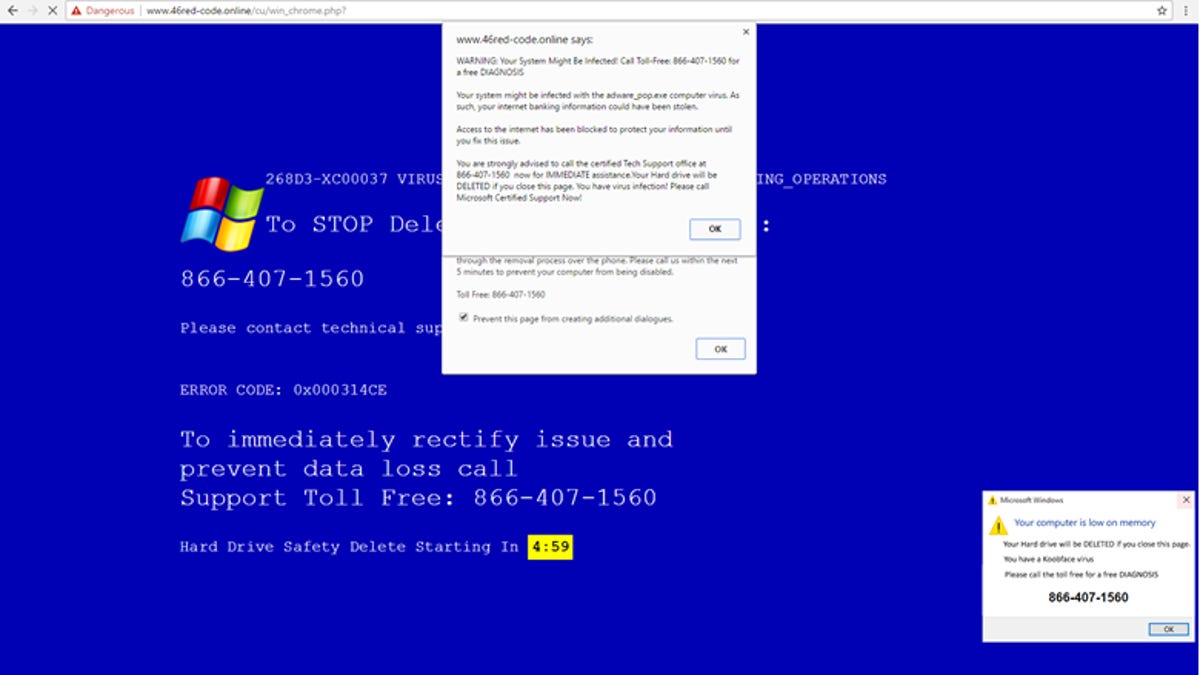Government cracks down on tech support scam
The scams tricked people into thinking they had viruses and malware, and charged them for unnecessary repairs.

The pop-up ad looks like this.
Beware any tech support ads that pop up on your computer.
The Federal Trade Commission, along with federal, state and international law enforcement agencies, said on Friday they caught several scam artists who bilked money out of victims through a tech support scheme.
The scam worked like this: An advertisement designed to look like a security alert would pop up on your computer to warn of a virus or malware, directing the user to call a toll-free number. Some of the messages even included a countdown clock.
Once the person called the number, they were connected to telemarketers claiming to work with well-known companies like Apple or Microsoft. These telemarketers would ask for remote access to the computer and discover a large number of problems (that weren't really there). They would ultimately charge the user hundreds of dollars for unnecessary repairs.
"Tech support scams prey on people's fear of losing important work, family photos or sensitive identification information," said Florida Attorney General Pam Bondi in a statement.
The FTC crackdown nabbed people in Ohio, Alabama, Florida and Colorado.

